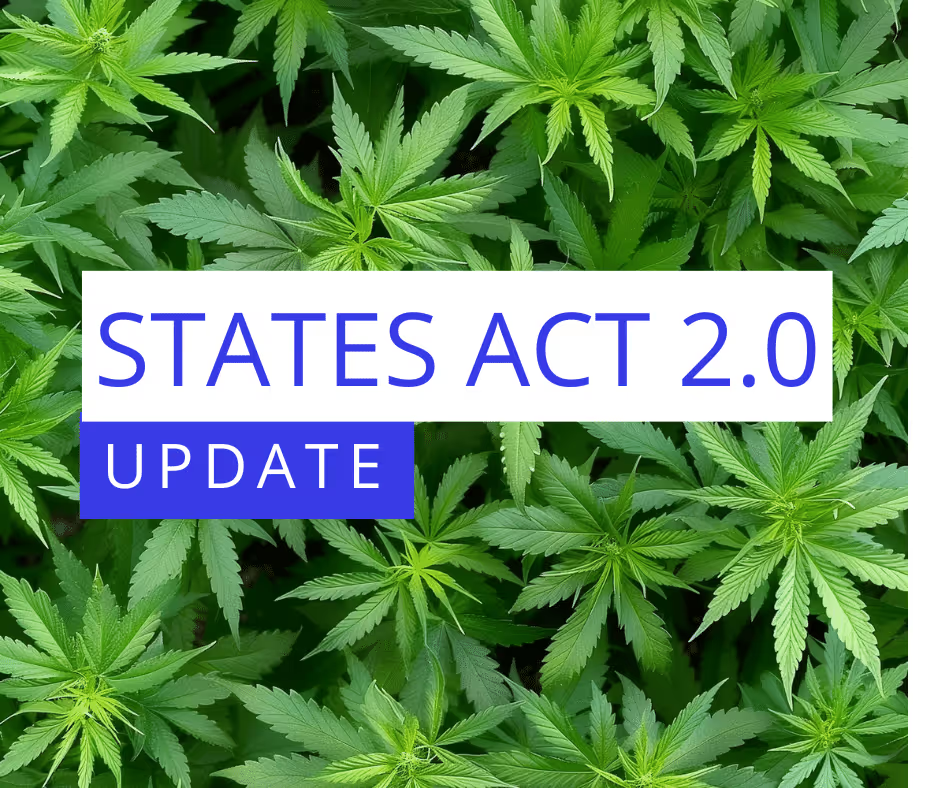By Terry Mendez, Michael Bronstein — June 04, 2025, 10:00 a.m. EDT
Source: Read the original article at American Banker
The STATES 2.0 Act, currently pending in Congress, would go a long way toward giving banks confidence that they can provide services to legal cannabis businesses without putting themselves in jeopardy, write Terry Mendez, of Safe Harbor Financial, and Michael Bronstein, of the American Trade Association for Cannabis and Hemp.
A bipartisan bill recently reintroduced in Congress could mark a turning point for the cannabis industry’s long-standing challenges with federal tax policy and access to banking. The Strengthening the Tenth Amendment Through Entrusting States 2.0 Act — commonly referred to as the STATES 2.0 Act — seeks to reconcile federal law with the growing number of states that have legalized marijuana in some form.
Backed by Reps. Dave Joyce, R-Ohio, Max Miller, R-Ohio, and Dina Titus, D-NV, the bill proposes a federal framework that respects state and tribal authority to regulate cannabis, while establishing clear boundaries between legal and illicit activity. With 38 states and Washington, D.C., already embracing some form of legalization, the STATES 2.0 Act could help bring policy into alignment with economic reality.
At the heart of the legislation is the de-scheduling of marijuana under federal law — but only for cannabis activity that complies with state or tribal regulations. Businesses operating legally under these frameworks would no longer be subject to the Controlled Substances Act, while unlicensed operations would remain prohibited and subject to federal enforcement. This approach preserves state sovereignty while offering federal clarity for enforcement and regulation.
The bill also allows for regulated interstate commerce between consenting states — an important step for operators in states with supply gluts or constrained retail access. With cannabis increasingly treated as an interstate business — both in terms of supply chains and consumer behavior — this provision acknowledges the evolution of the market.
Perhaps most notably for the financial sector, STATES 2.0 provides critical protections for financial institutions. Banks, credit unions and insurers that serve state-legal cannabis businesses would no longer be penalized under federal law. This provision alone could unlock more affordable capital, insurance coverage and financial services — necessities that many cannabis companies struggle to secure today.
While the SAFE Banking Act has garnered more headlines, STATES 2.0 tackles the issue at a deeper structural level. It not only provides safe harbor for financial institutions, but also addresses the underlying conflict between federal and state cannabis laws — giving much-needed clarity to regulators, businesses and consumers alike.
We believe STATES 2.0 is a responsible step forward that balances state rights with federal oversight. By embracing a framework that prioritizes regulatory clarity and access to financial infrastructure, Congress can help stabilize and professionalize the cannabis economy — while upholding public safety and the rule of law.
Terry Mendez is CEO of Safe Harbor Financial.
Michael Bronstein is president of the American Trade Association for Cannabis and Hemp.

